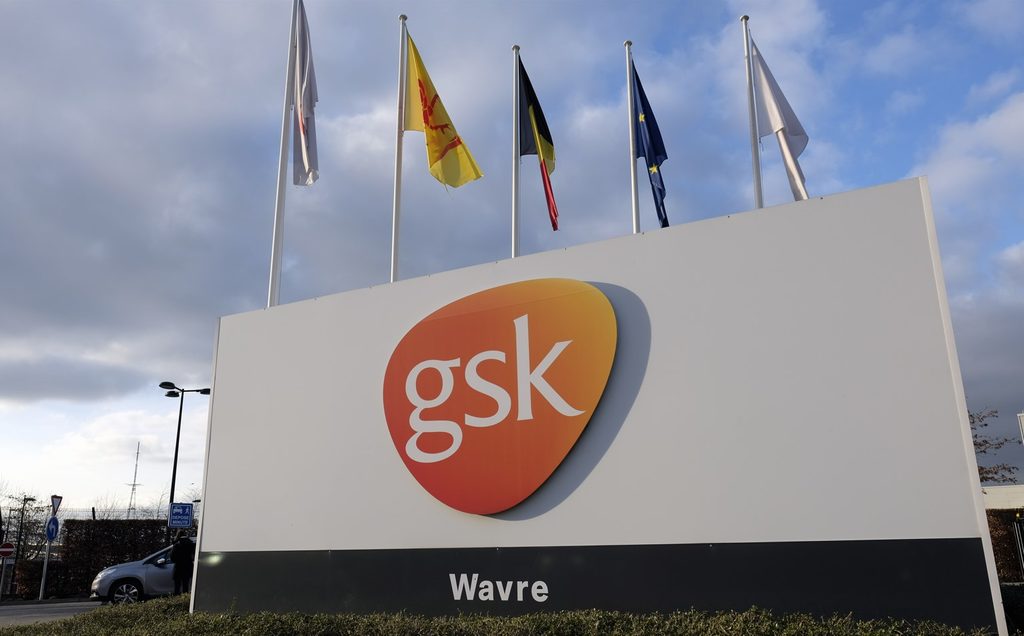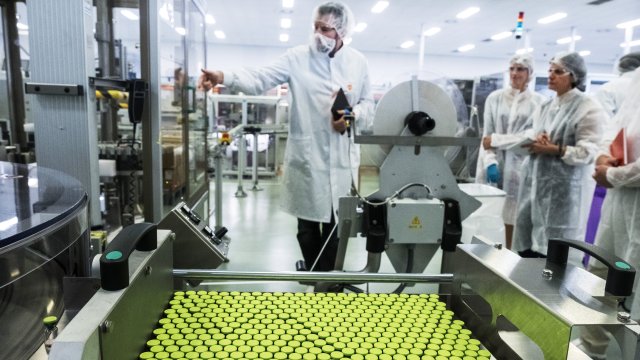After more than 60 years of research, pharmaceutical company GlaxoSmithKline (GSK) has become the first in the world to develop a vaccine against the sometimes deadly respiratory virus RSV – and is producing it in Belgium.
Scientists have been searching for a vaccine against RSV (respiratory syncytial virus) since the 1960s. Every year, the infectious seasonal virus is responsible for half a million hospitalisations in industrialised countries and 160,000 deaths worldwide, some 20,000 of them in Europe.
The vast majority are children under 2 years old. In them, the virus is the main cause of lower respiratory tract infections, such as pneumonia and bronchiolitis.
However, it can also cause severe problems for the elderly and those with weakened immune systems: every year, some 270,000 over-60s in Europe end up in hospital due to an RSV infection and 20,000 people in that age group die from it – usually due to the virus aggravating pre-existing diseases, such as asthma or heart conditions.
Last winter, the combination of Covid-19, influenza and RSV proved to be a major challenge for the healthcare sector.
Made in Belgium
However, for the first time in history, RSV vaccines are now being produced in a factory in the city of Wavre, just south of Brussels, following the green light by the US Food and Drug Administration (FDA) in early May.
Meanwhile, GSK, which supplies the entire chain of vaccine production at its huge plant in Belgium, already shipped millions of RSV shots from Wavre to the US. After the European Medicines Agency (EMA) also gave approval at the end of April, which the European Commission has now ratified, the EU and Japan will soon follow.
GSK aims to make the vaccine available in Belgium by autumn so that over-60s can be protected before the winter season of 2023. "We are now still waiting for the opinion of the Superior Health Council on its use in our country and we are submitting applications to the government for price and reimbursement," spokesperson Elisabeth Van Damme told De Morgen.

Credit: Belga/Eric Lalmand
The vaccine is also a Belgian success story as the country's expertise in development played an important role: three universities (UGent, KU Leuven and UAntwerpen) and smaller hospitals participated in the clinical trials with 25,000 participants. "Because the cooperation between academia and industry is strong here, this went very smoothly," said vaccinologist Corinne Vandermeulen, head of clinical vaccine studies.
"Another advantage is that the control bodies here are very routinised when it comes to vaccine research and that there is a good flow of information between the universities, government and industry. That really makes a difference. That way, we do not have to rely solely on scientific papers but have quick access to the results in the people taking part in the clinical trials," she said.
The much-anticipated vaccine, called Arexvy, is based on a genetically modified recombinant (a genetically modified protein) and an adjuvant (a substance that enhances the effects of a vaccine) and offers over-60s almost 83% protection against respiratory infection, according to the results of GSK's clinical trials.
"It was a very long road," Marie-Thérèse Martin, in charge of vaccine development at GSK, told the newspaper. "The relief when the main test results turned out positive was enormous." In the meantime, GSK is preparing for large-scale production of the vaccine for the elderly and is conducting further research in the elderly target group on long-term protection.
"How that will work exactly is unknown at the moment, but we are now following up on that," Van Damme said. "In any case, over-60s will be able to sleep soundly for the first time this winter when it comes to the dangers of this virus."

